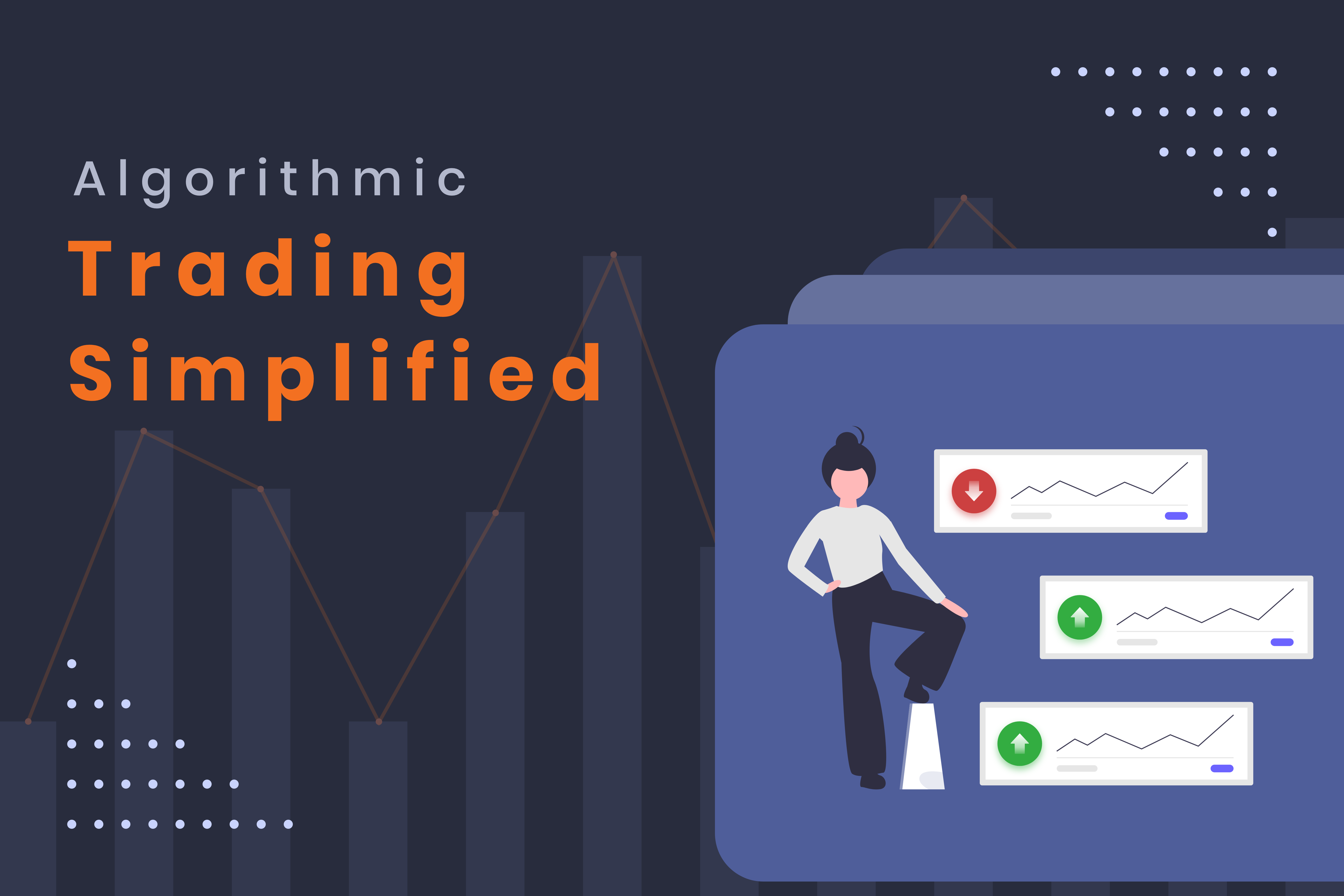DECODING ALGORITHMIC TRADING

Trading in India Overview(Paradigm shift in the recent years)
India has seen an enormous change in people's interest towards trading in recent years. There has been a huge shift from traditional ways of saving money in the form of bank deposits, gold etc to investing it in the money market. With changing scenarios such as the advancement of technology, increase in internet penetration & falling interest rates, investing in stock markets has also taken off. Technology has played a very important role in this prominent shift. Opening a Demat Account and trading in stocks can now be done easily within a matter of a few minutes using smartphones. Brokerage firms have also adapted to the changing technology to make the process of investing very convenient to their end users. According to a report published by SBI, the number of individual investors in the market has increased to 142 lakh in FY21 with 122.5 lakh new accounts at CDSL and 19.7 lakh in NSDL. With the increase of technical knowledge, the interest is also gradually shifting towards Algorithmic Trading as it reduces the time and human effort behind manual trading, to a large extent and has been fruitful to the large scale traders.
What are Algos & Algo Trading basics?
An algorithm in layman’s terms is a set of rules that specifies what must be done step by step in order to execute a particular task. In Algo-Trading, rules refer to the conditions which are needed to be satisfied for a trade to take place. Algo trading comprises of two basic steps i.e. backtesting a particular strategy and programming the strategy for live implementation.
Backtesting refers to assessing a particular strategy on the historical data to identify the worthiness of the strategy by analyzing its past performance. While live implementation is programming and integrating the strategy with trading accounts so as to trade on the live markets. Live implementation can be done with the help of APIs (Application Programming Interface) that allows the program to interact with the broker’s application. Customers will be able to know the positions on their portfolio and fetch the live market data through the algorithm to trade strategically using the APIs provided by the broker.
Pros & Cons of Algorithmic Trading
Algo-trading, as a sector, has seen a sheer growth in the past 2 years. Its multiple advantages have been a reason for the same. Automated trading minimizes the risks involved due to emotional trading hence preserving the trader’s discipline. The ability to execute large amounts of trades in a matter of seconds leads to optimized results and greater convenience for the user. The convenience of backtesting a strategy and trading in multiple accounts is also an asset of Algo-Trading. Although it has a lot of advantages, it can lead to grave consequences too if not monitored properly. Systemic risks such as poorly programmed algorithms and mechanical failures can also lead to huge amounts of losses. To summarize it, like every coin has two sides, algorithmic trading has its pros and cons too and it should be done with precautions to avoid the negative impacts.
Algo-Trading Through IIFL Securities
With the growing demand of Algo-Trading in Indian markets, IIFL Securities also provides a platform for its users to begin with the same. Customers can build and automate their own strategies based on the Open-APIs provided by us without any cost. The APIs provided are customizable, have a success rate of around 99.9% and the users can fetch around 100 Scrips every millisecond with the fastest response in 0.02 milliseconds. Our APIs can be integrated in 9 programming languages and supports trading in Cash, Currency, Commodity & Derivatives. Historical data is free for all the IIFL users, hence one can backtest their trading strategies and start early with algo-trading. The documentation for the same can be found at api.iiflsecurities.com
Stay tuned every Friday for more information on Algo-Trading & the Revolution that APIs are bringing in modern day trading.
Topic Participants
Kajal Kumari
kkrmimimi
Sticky Posts
Demystifying Open APIs
Trading industry has evolved from “I need to call the dealer to trade” to “I can trade by simple click on my mobile”. After the literacy rate and computer literacy wave, India is facing a financial literacy wave for the last 3-4 years. Automation hasFind Trading Opportunities using Technical Analysis
What is Technical Analysis? There are various ways to understand the market, whether it be through intuition, fundamental or technical analysis. Like others, technical analysis is also used to predict the course of prices of a security according to theDECODING ALGORITHMIC TRADING
Trading in India Overview(Paradigm shift in the recent years) India has seen an enormous change in people's interest towards trading in recent years. There has been a huge shift from traditional ways of saving money in the form of bank deposits, gold